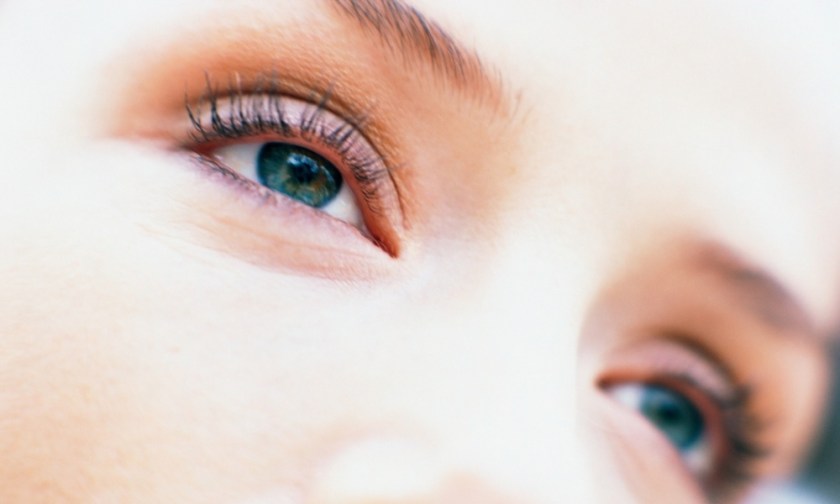What’s the brain got to do with great skin? Everything. Writes Ashleigh Sharman.
If 2015 was the year of the gut, then 2016 is the year of the brain with the new field of psychodermatology leading the charge.
Since I can remember, I’ve been told I have sensitive skin. My mother recounts stories of rashes, lumps and bumps from early childhood, allergic reactions to this and that, which as a teenager would turn into acne, rosacea, dermatitis and more. You get the picture.
But running as a parallel plot line has been my sensitive nature. Regularly quoted as being a ‘sensitive little soul’, I’m considered emotionally reactive, and an introvert. Many years later, I can’t help but wonder if the two are indeed inextricably linked?
Knowing the skin is our largest organ and a great indicator of general health, enter the field of psychodermatology. Addressing the interaction between mind and skin, as explained by Mohammad Jafferany, M.D., this new field is a coming together of internal observations of dermatology, matched with the internal observations of psychology.
“In a majority of patients presenting to dermatologists, effective management of skin conditions requires consideration of associated psychosocial factors.
“More than just a cosmetic disfigurement, dermatologic disorders are associated with a variety of psychopathologic problems that can affect the patient, his or her family, and society together,” he says, adding that this skin-mind connection has been, until recently, largely underestimated.
Where this field is considered most helpful is in chronic conditions such as eczema, psoriasis, dermatitis, rosacea and acne, especially in patients who are female. In such cases it is noted how stress, and subsequent inflammation, although not the primary cause, greatly worsen the condition – no doubt something you have also witnessed in clients.
Granted you are reading this and are not a Dermatologist or Psychiatrist, what does this all mean for the beauty therapist and aesthetician?
Matoyla Kollaras, Director of Skinfactors, says the need to deal with the whole person when addressing their skincare needs is not a new concept.

“Some clients may have already exhausted the medical option, and so seek the help of skincare clinics to solve their issues.
“Unlike most internal illnesses, skin disease is often immediately visible to others, and thus can prove to be a hugely stressful and heart-breaking experience for the individual that has to live with the skin disease,” she explains, adding that the skin disease often becomes ‘who they are’ to the world and that the role of empathy should not be overlooked.
Matoyla suggests that the mananagement of such clients requires great awareness and support, mindfulness, kindness and honesty.
“Your initial consultation therefore, is a crucial component of the treatment process. Consider whether you can truthfully help this client. Do you know how to best approach and treat their skin condition?
“You may also need to discuss the possibility that your client may need to consult health professionals such as dermatologist, psychologist and nutritionist,” however Matoyla adds it’s important to remember you may indeed be the clients last resort.
My own discovery of this exciting new field came through mind-body expert and neuroscientist, Dr Claudia Aguirre who says our skin really does reveal our innermost feelings, calling us out of guilt, shame or panic.

“The ancient traditions from Greece to China to India highlighted the interdependence between the mind and the body.
“Somewhere along the lines in Western medicine, we lost this connection, focusing instead on philosophies that treated the body as a seperaeate entity from the mind.”
So perhaps the rise in holistic and complementary therapies, from yoga to meditation, Ayurveda to acupuncture, hold a clue to at least partially treating chronic skin diseases.
“I’m not saying you can ohm your pimples away, but taking a look at the roost cause and certainly decreasing stress levels, could be a secret ingredient to your arsenal of skin-clearing techniques.
“In reducing cortisol, you’re putting an end to a molecular pathway that could lead to devastation on skin tissue, to put it kindly,” Dr Claudia explains.
This is clearly only the opening act to a new field that could dramatically change the way we diagnose and treat chronic skin conditions, and one for which my own skin is already delivering a standing ovation.
References
- Psychodermatology: A Guide to Understanding Common Psychocutaneous Disorders, Mohammad Jafferany, M.D. Prim Care Companion J Clin Psychiatry 2007;9(3)
- Psychodermatology: More than Skin Deep, Matoyla Kollaras. APAN Journal, March 2015
- The Brain-Skin Connection, Dr Claudia Aguirre, doctorclaudia.com




